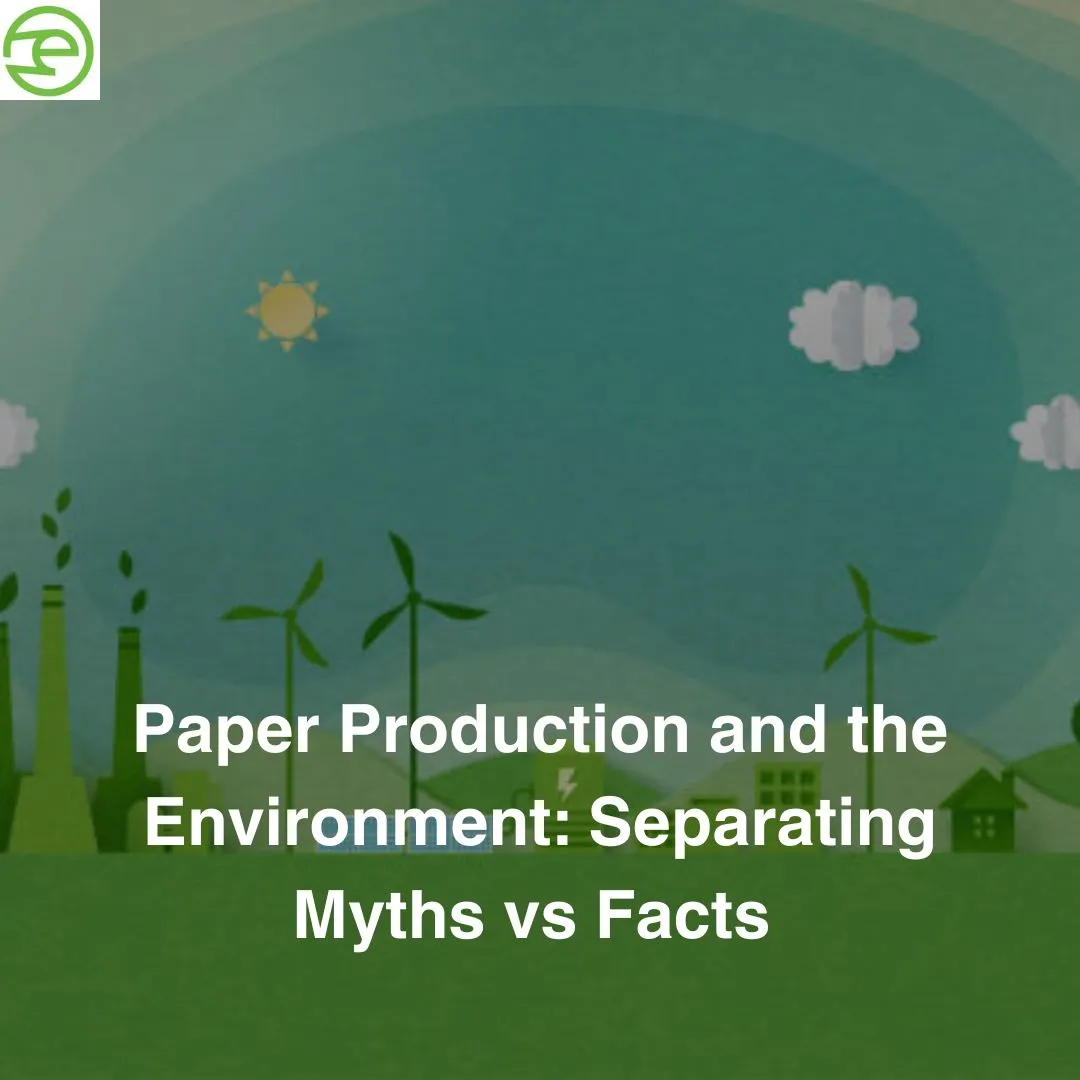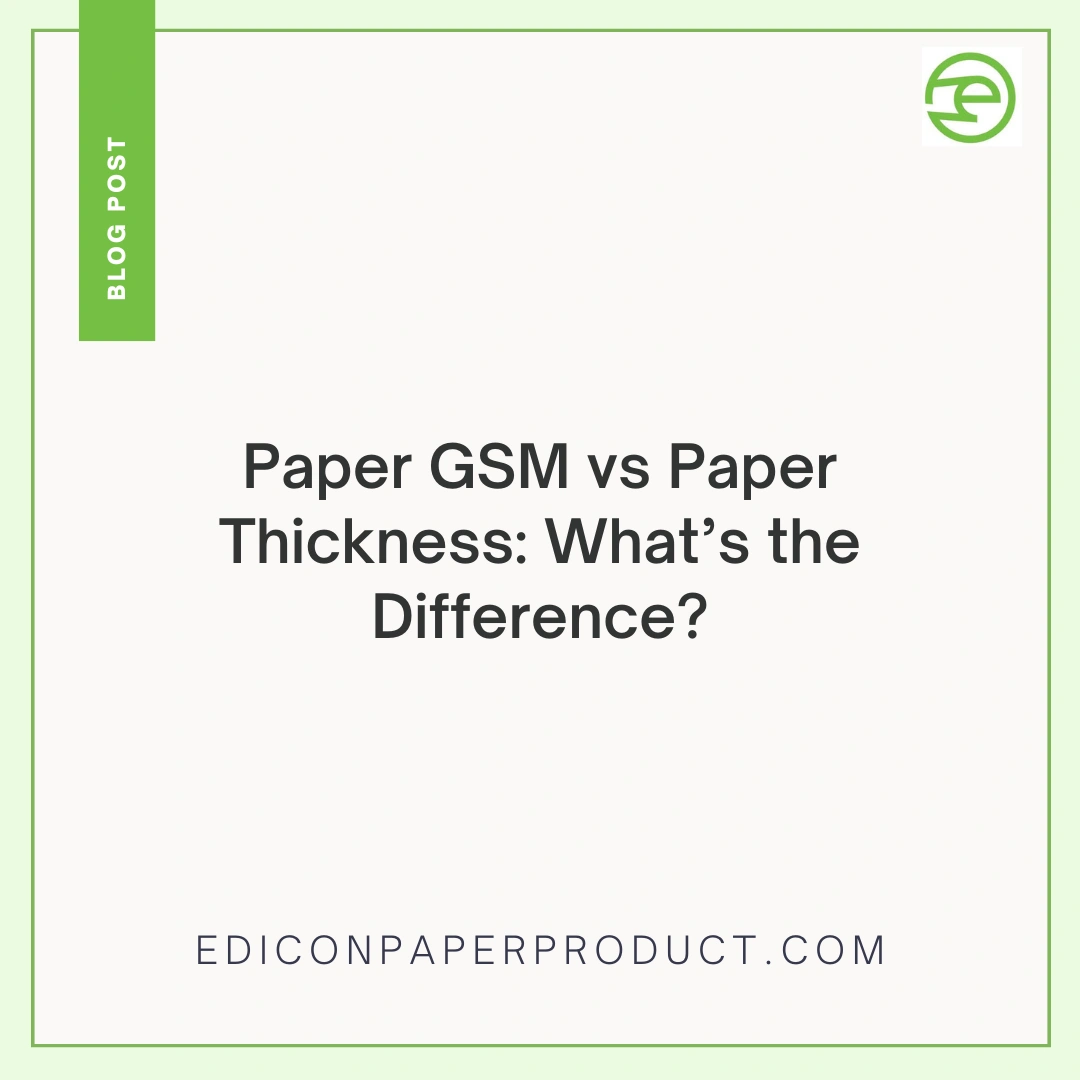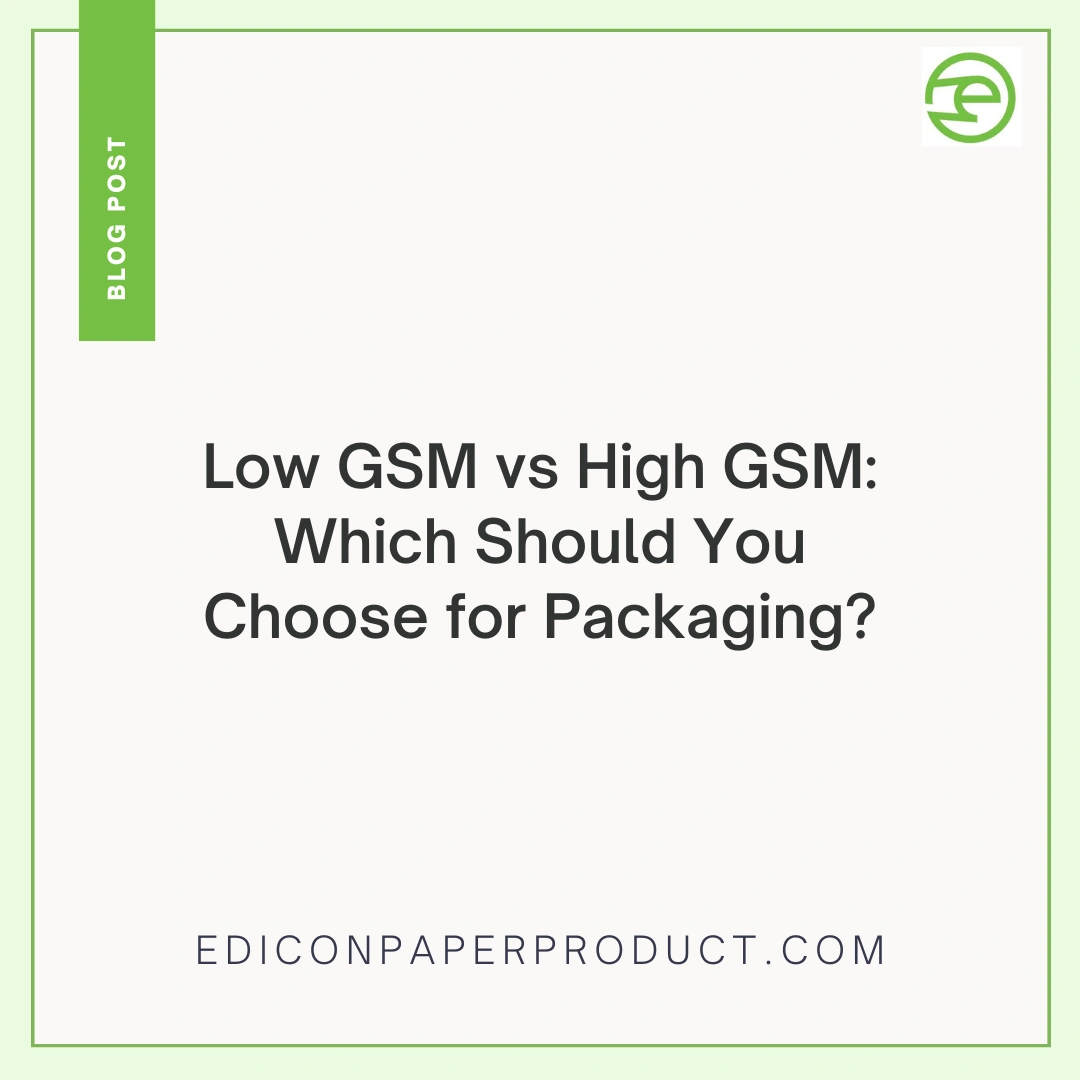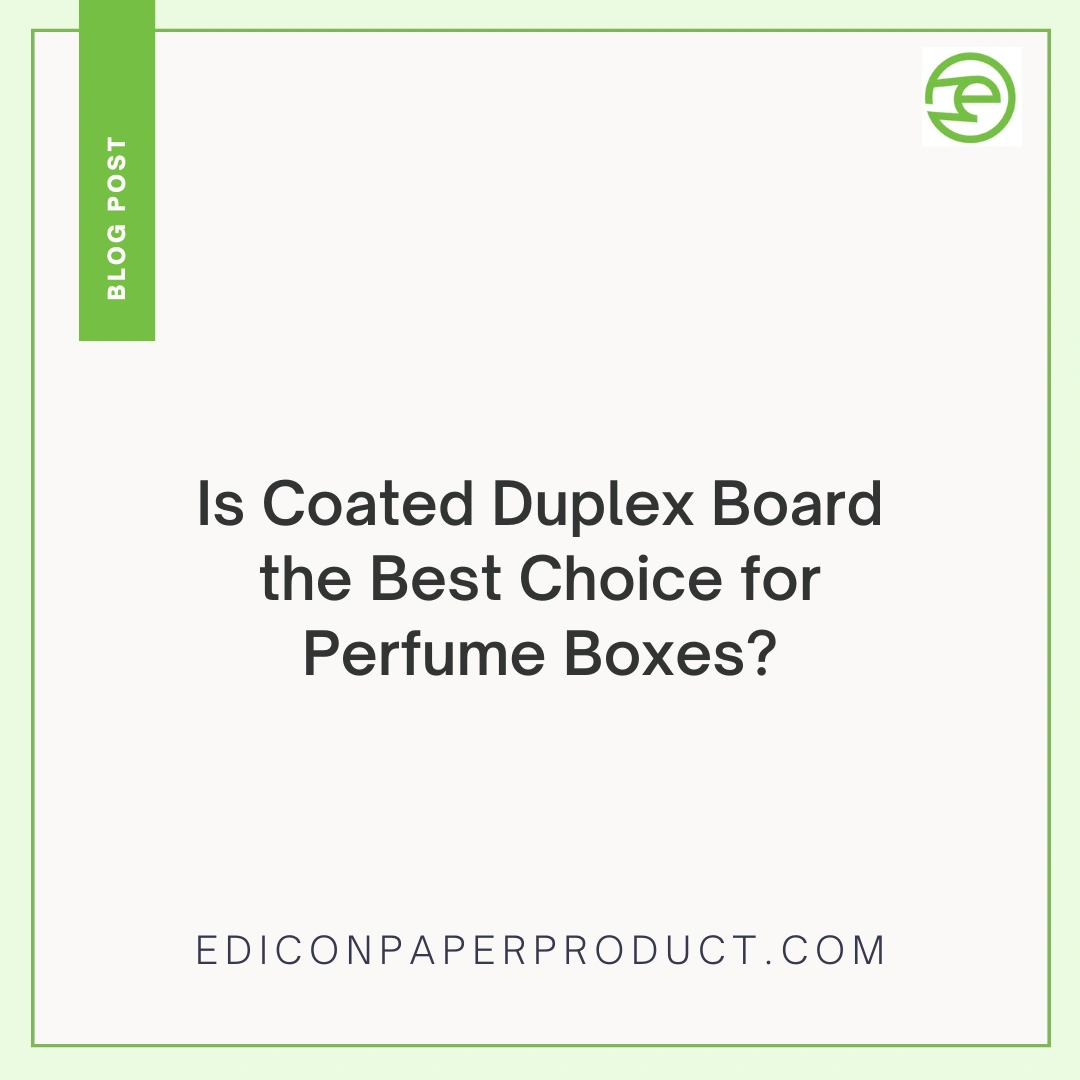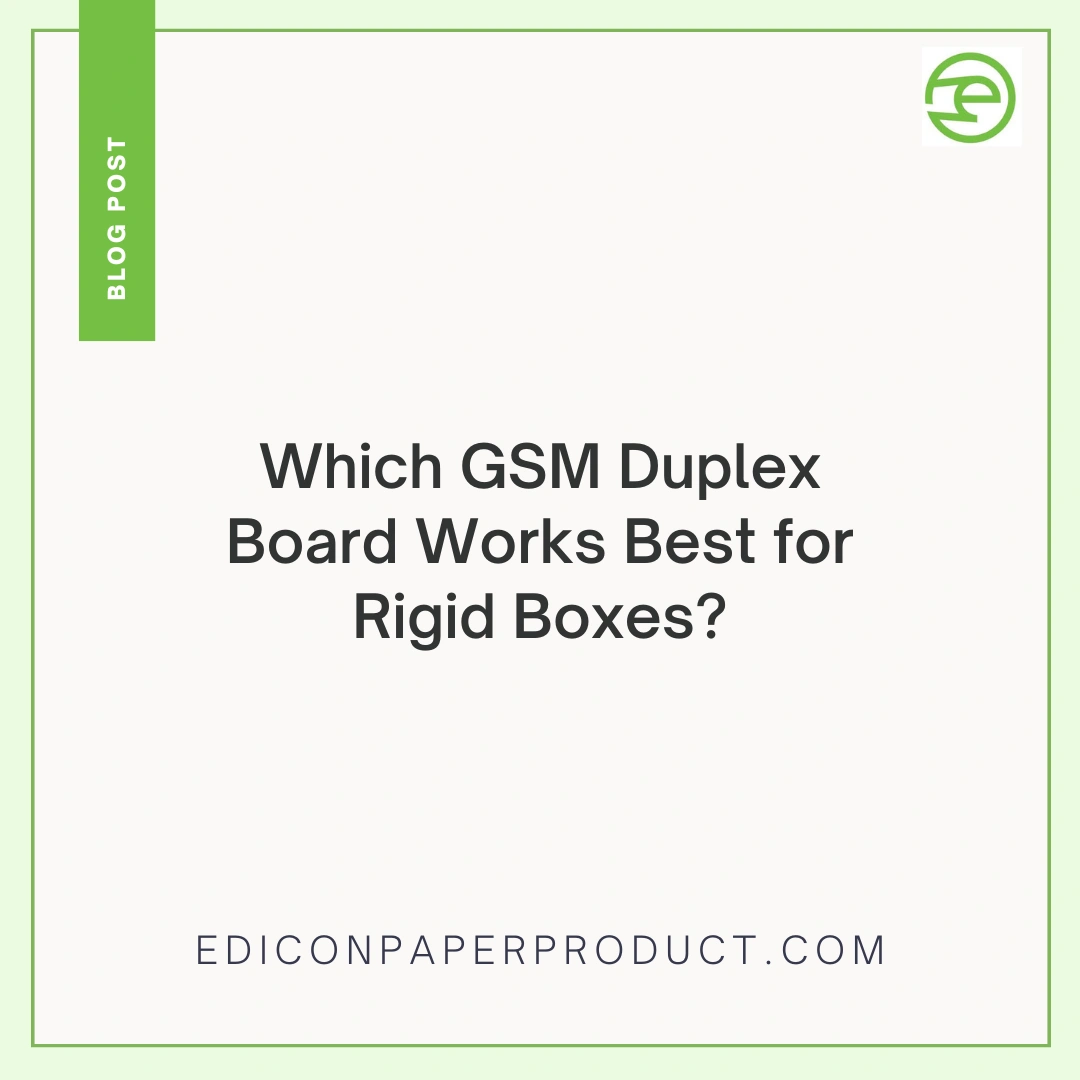Paper Production and the Environment: Separating Myths vs. Facts
Paper production has always been in controversy, especially from an environmental perspective. With awareness and technology fast catching up with the present-day world, it's very important to establish what exactly is myth and what is fact, in order to get an idea as to how the industry is developing, and how companies such as Edicon Paper are helping in this quest towards sustainable values.
Myth 1: Paper Production Is Always Harmful to the Environment
Fact: Traditional paper production had massive impacts on the environment, which most of the negative impacts have been sorted out through the advent of new technologies and changed practices. Latest paper mills, even those producing duplex and triplex coated board makers, are utilizing state-of-the-art waste- and emission-reducing processes.
For instance, Edicon Paper, one of the biggest manufactures of duplex and triplex coated boards, have been practicing environmentally friendly solutions in terms of ecological footprint reduction. All duplex and triplex boards are produced minimizing the use of raw materials concerned, consequently reducing their demand and affecting forests less.
Myth 2: All Paper Production Contributes to Deforestation
Fact: Responsible paper makers are not responsible for deforestation. In fact, many companies now use sustainable practices, including sourcing wood from responsibly managed forests. Edicon Paper ensures that all their duplex and triplex coated boards are made with paper from responsibly managed forests.
More on that later because, presently, paper recycling is an integral part of this industry. Recycling of paper conserves virgin fibers, thus being more protective to forests and less harmful to the environment.
Myth 3: Paper Production Consumes Excessive Water and Energy
Fact: Making paper does involve the need for water and energy. But technology has cut down these needs by many notches. Modern mills for duplex and triplex coated boards have already adopted closed-loop water systems and energy-efficient processes.
For instance, Edicon Paper Mill has been making investments in technologies aimed at minimizing water consumption and energy use in its production processes. That is, again, not only a positive environmental footprint but also a contribution to truly sustainable production.
Myth 4: Recycling Paper Is Ineffective and Inefficient
Fact: Paper recycling is effective and efficient. It reduces the demand for virgin fibers, thus saving a lot of natural resources while at the same time reducing the environmental impact resulting from the production of paper. Besides that, the recycling process uses less water and energy compared to making paper from raw materials.
![]()
By using such treated recycled fibers in making their duplex and triplex coated boards, companies like Edicon Paper support the efforts and initiatives of recycling, further increasing the sustainability of these products.
Myth 5: Paper Products Are Non-Biodegradable and Harmful to Landfills
Fact: Paper is biodegradable and breaks down naturally in landfills. This is unlike plastics, which can take hundreds of years before completely decomposing. Moreover, paper degrades considerably quickly. In addition, when paper lands are properly disposed of and recycled, the total quantity found on the ground is then used in the manufacture of new items, which eventually sums to a lesser amount that is disposed of in landfills.
Sustainability is at the forefront of all Edicon Paper products, whether it be through use of duplex coated boards that clearly support and are synonymous with environmentally responsible planting and fiber harvesting, or in its circular business model, whereby it ensures its products have low impact throughout their lifecycle.
Myth 6: Eco-Friendly Paper Products Are Always More Expensive
Fact: Green paper products are most of the time slightly expensive, but the plus points often nullify the difference. With advancing technology and economies of scale kicking in, many of the sustainable practices and green products are becoming affordable.
![]()
Edicon Paper provides top-of-the-line duplex and triplex coated boards, which are green, yet competitively priced, hence making sustainable options accessible to more people.
Myth 7: Paper Production Pollutes the Air with Harmful Chemicals
Fact: Paper production facilities of today have improved by leaps and bounds in air pollution control. Advances in technology and stringent environmental regulation have brought forth the design of production processes that are relatively cleaner in nature. Most paper mills, such as duplex and triplex coated boards, use advanced filtration and pollution control technologies along with other equipment to curb emissions.
For instance, Edicon Paper operates within very stringent environmental standards to ensure that their production activities do not pollute the air. The industries invest in technologies that favor air quality so as to make the environment cleaner.
Conclusion
The paper industry has come a long, environmentally enriching journey. Companies like Edicon Paper are leading in the production of duplex and triplex coated board with an uncompromising focus on sustainability. Knowing such facts can perhaps lead us toward making better choices about the paper products we use and help foster a healthy planet.
The many myths surrounding paper production tend to overshadow the great strides that have been made toward environmental stewardship. If we separate fact from fiction, we can appreciate all those strides forward in industry and further our support of sustainable practices benefiting both environment and society.

